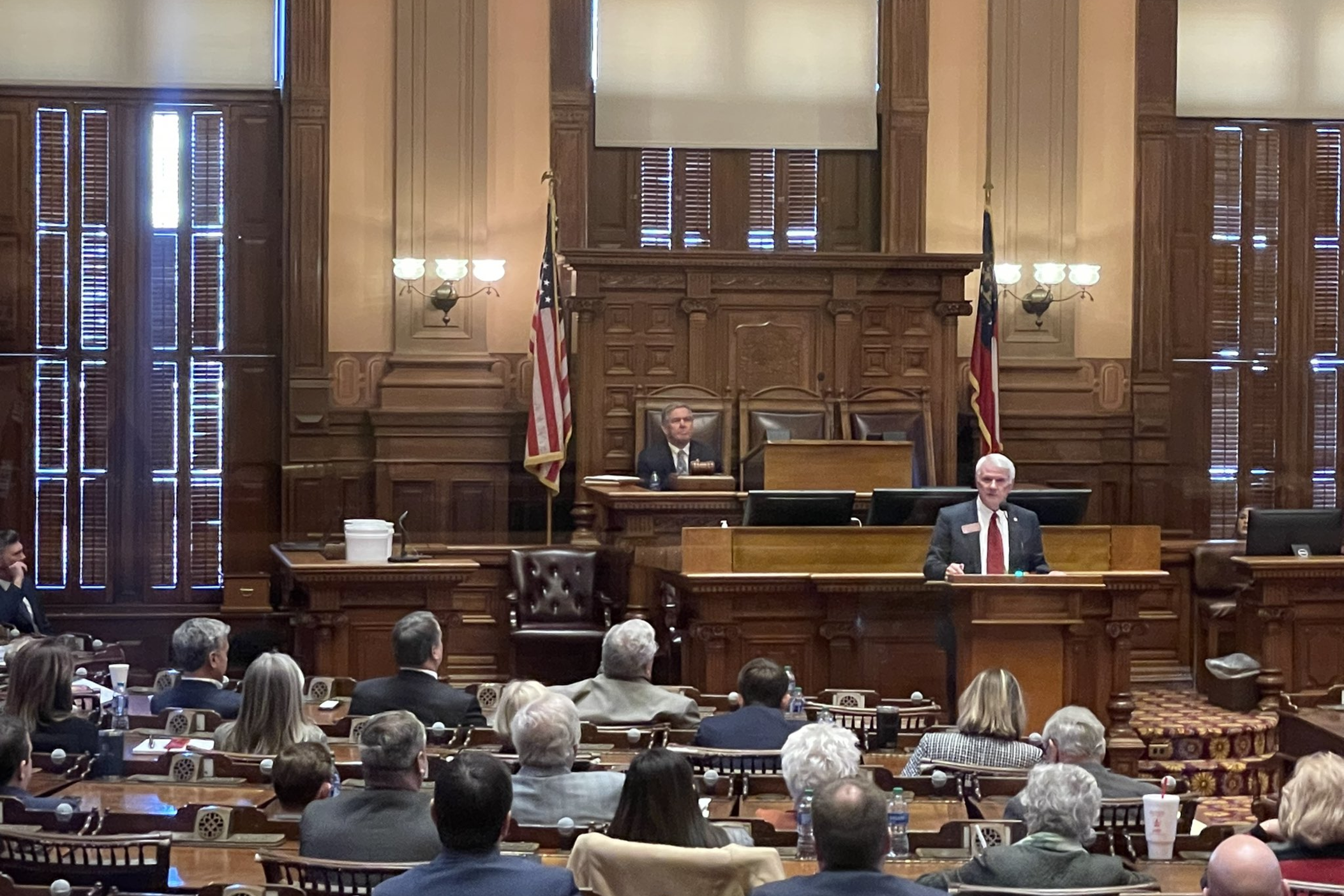Section Branding
Header Content
House Speaker Burns calls for more changes to state election laws
Primary Content
ATLANTA — Georgia voters can expect further “tweaks” to state elections laws this year, House Speaker Jon Burns said Wednesday.
House Republican leaders will push to eliminate QR codes from the paper ballots voting machines spit out to voters after they cast their ballots and consider strengthening the powers of the State Election Board, potentially at the expense of the secretary of state, said Burns, R-Newington.
The General Assembly passed legislation in 2019 providing for a paper backup to electronic ballots, a move aimed at giving Georgians more confidence their votes are being recorded accurately. But some voters have complained that the QR codes are confusing and impose a barrier on transparency.
“We need to give voters confidence … to feel like there’s transparency when they vote,” Burns said.
The other potential change to election laws Burns talked about Wednesday would shift investigations of voter complaints of election fraud from the secretary of state’s office to the State Election Board. Burns said such a move would help make the board more independent.
The most sweeping changes in Georgia election laws occurred in 2021, following 2020 elections that saw Democrats capture both of the state’s U.S. Senate seats and Democrat Joe Biden narrowly carry the Peach State on his way to the White House.
Senate Bill 202 that year required voters seeking to cast absentee ballots to show a photo ID, a provision that already applied to in-person voting. The 2021 measure also limits the number of absentee ballot drop boxes and prohibits non-poll workers from handing out food and drinks within 150 feet of voters standing in line.
On other issues Wednesday, Burns said he remains committed to Georgia Pathways, the limited Medicaid expansion championed by Gov. Brian Kemp that took effect last summer. Enrollment has gotten off to a slow start, but Burns said the governor has added resources aimed at getting more eligible Georgians signed up.
“It’s moving in the right direction,” the speaker said.
Legislative Democrats, meanwhile, are continuing to push for full-blown Medicaid expansion, which they argue would cover more Georgians at less cost.
Burns said he is looking to House members to weigh in on Republican-backed private school vouchers, legislation that failed on the House floor last year. Democrats and some Republicans objected to taking money away from public schools to help pay for private school tuition.
“I think it’s a good issue,” Burns said. “It’s giving Georgia families access to educational opportunities that might not be in their communities.”
Burns also said he’s confident the state Senate will support a mental-health bill aimed at increasing the size of the mental-health workforce in Georgia and making it easier for people who cycle between the streets, emergency rooms and jails to get the help they need.
House Bill 520, a follow-up to major mental-health reform legislation lawmakers passed two years ago, died in the Senate at the end of last year’s session.
This story comes to GPB through a reporting partnership with Capitol Beat.


